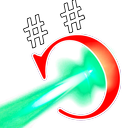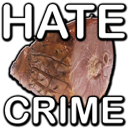Eileen Rumwell (who needs to turn comments on at her blog) recently asked the question, "Where do you get your .NET information?" Its an interesting question; one that applies across just about every profession but is of significant importance for developers. Information changes so quickly that relying on printed material is a liability. So where do good developers go to find the answers to their questions? For me, there's three primary places. Blogs, books and Google.
I consider regularly reading programming blogs to be a class I attend daily. This "class" primarily consists of reading posts from about 50 different feeds that are relevant to my interests. blogs.msdn, CodingHorror and DotNetKicks are among these. Although not a primary resource, I do consider books to be still important in keeping abreast of things in the programming world. Often I use books as a less frequently used resource for research. Often this consists solely of reading books related to work. For example, the last book I read was the Mythical Man-Month; I'll be reading a book on implementing Agile with VSTS next. My third source of information is primarily for quick searches. Often this consists of taking five minutes to search for information on a specific, well defined topic, related to a task I'm currently programming or a subject I'm posting about. These searches take place in three places: VS help, Google web search and Google groups search. Which I do in what order depends on the task and where I am. In VS, the help gets my first attention. When that fails (as it often does), I go to google groups. Almost always someone has had the same question that I have and has posted it on Usenet. Google Groups is the best place to search Usenet to get clues as to possible answers, if not the answer itself. Once I have a better understanding of the problem and its possible solutions, I can refine this knowledge by continuing to search the web. There's a higher percentage of crap in a web search, but I often can refine it by specifying a site (i.e., site:msdn.microsoft.com) or -negating -specific -words -that -indicate -useless -websites.
Anyhow, that's a quick overview of what I do. I'm always open to finding more useful sources of information. Post yours here!
-
 [blarg]
[blarg]
-
 [blarg.left]
[blarg.left]
-
 [blarg.right]
[blarg.right]
-
 [csharp]
[csharp]
-
 [csharp.left]
[csharp.left]
-
 [csharp.right]
[csharp.right]
-
 [horror]
[horror]
-
 [horror.left]
[horror.left]
-
 [horror.right]
[horror.right]
-
 [wtmf.small]
[wtmf.small]
-
 [wtmf.small.left]
[wtmf.small.left]
-
 [wtmf.small.right]
[wtmf.small.right]
-
 [wtmf.large]
[wtmf.large]
-
 [wtmf.large.left]
[wtmf.large.left]
-
 [wtmf.large.right]
[wtmf.large.right]
-
 [huh.small]
[huh.small]
-
 [huh.small.left]
[huh.small.left]
-
 [huh.small.right]
[huh.small.right]
-
 [huh.large]
[huh.large]
-
 [huh.large.left]
[huh.large.left]
-
 [huh.large.right]
[huh.large.right]
-
 [hate.small]
[hate.small]
-
 [hate.small.left]
[hate.small.left]
-
 [hate.small.right]
[hate.small.right]
-
 [hate.large]
[hate.large]
-
 [hate.large.left]
[hate.large.left]
-
 [hate.large.right]
[hate.large.right]

